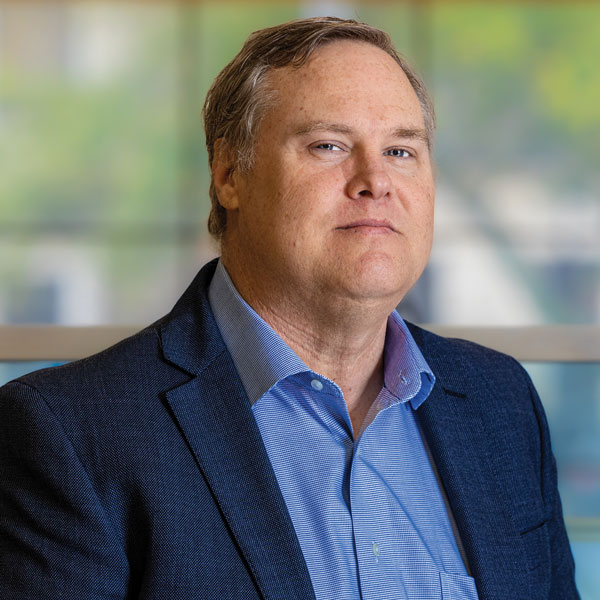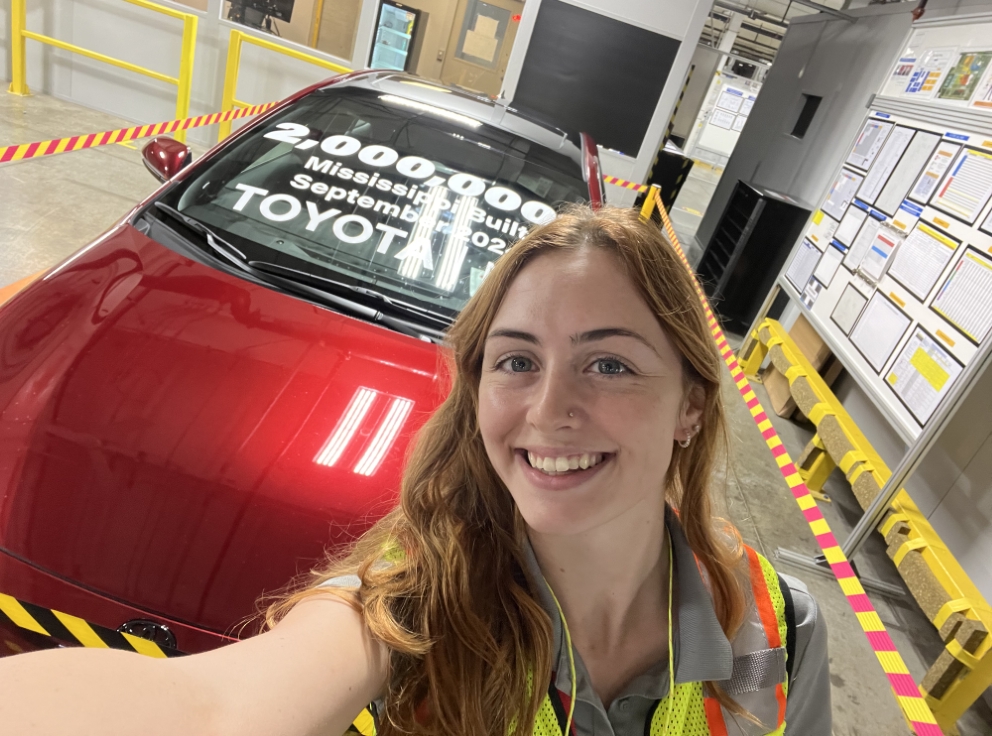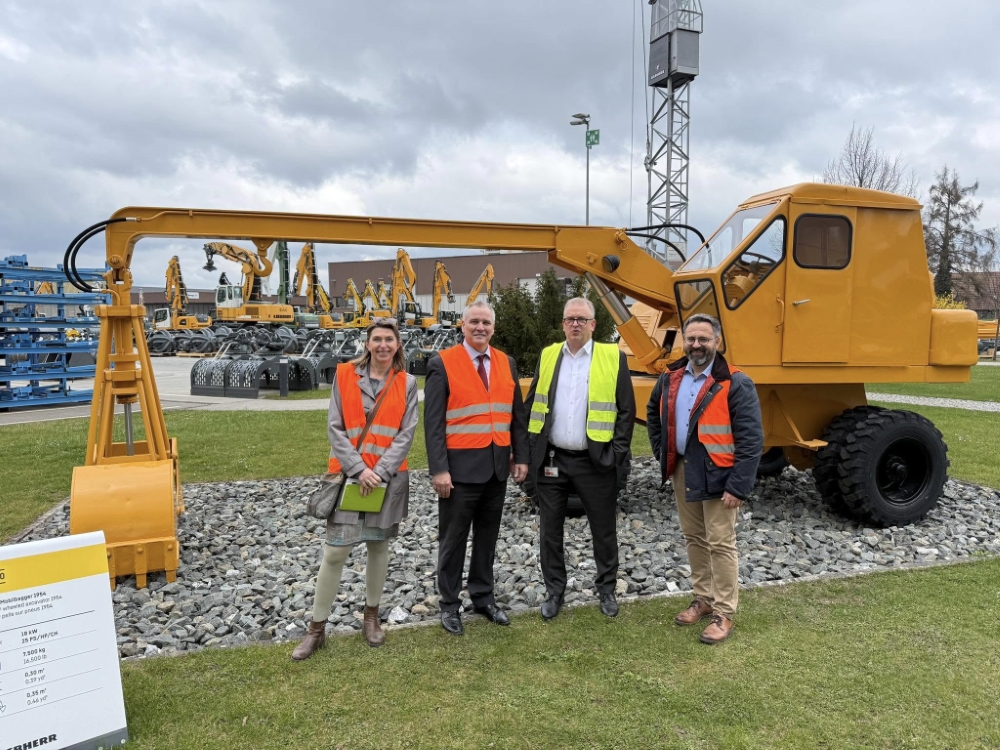More than 400 companies headquartered outside the United States have operations in Mississippi. A recent Mississippi Development Authority (MDA) report on foreign direct investment in the state notes that international companies have invested more than $3 billion since 2020, and more than 39,000 Mississippians are employed by those companies.
The top five foreign countries with Mississippi operations, supporting roughly 70% of those workers, are Japan, Germany, Canada, the United Kingdon and China. But operations from companies based in India, Malaysia, Finland, Chile and many other countries contribute to the Magnolia State’s economy. They benefit from the state’s rail, river, air and Gulf Coast logistics infrastructure; pro-business operational environment; and a plentiful, well-trained labor pool.
Switzerland-based ABB, a global provider of electrification and automation equipment, is investing $40 million to expand its operation in Senatobia by 200,000 square feet. The company plans to increase production of its air circuit breaker and molded case circuit breaker lines. ABB plans to complete work on the expansion in early 2026.
PCC GulfChem Corporation, a division of Germany-based PCC SE, is investing $540 million in a manufacturing operation in DeLisle. The maker of chemical feedstocks, specialty chemicals, silicon and silicon derivatives expects to create at least 84 jobs at the Harrison County site.
Sipcam Agro USA, owned by Italy-based Sipcam Oxon Group, recently invested $3.6 million to upgrade a recently acquired facility in Wayne County. The company specializes in agricultural fungicides, herbicides and other specialized solutions for agricultural uses. The project created 26 new jobs and retained 88 workers employed by the facility’s previous ownership.
All states find themselves in a new capital-attraction environment as U.S. tariff deals are negotiated and finalized with foreign markets. Mississippi sees opportunity even as the dust settles. In the following interview, Christian Lockamy, MDA Deputy Chief Economic Development Officer, explains why.
How is the current tariff climate affecting Mississippi’s prospects for additional foreign direct investment? Is the state taking steps to maximize this opportunity?
LOCKAMY: It presents both challenges and opportunities. While tariffs may raise costs for agricultural exports like rice, soybeans, cotton and corn, they also are encouraging foreign companies to shift production to the U.S. This presents a great opportunity for Mississippi to boost its FDI pipeline. In 2023, prior to the tariffs, Switzerland-based construction equipment manufacturer Liebherr announced it would invest $40.6 million and create 400 jobs to locate operations in Tupelo, Mississippi. This is just one example of Mississippi’s ongoing appeal to foreign firms, and we feel that appeal will be amplified as so many foreign companies are now looking to the U.S. for their production needs.
Mississippi Development Authority has offices in Europe, Asia and South America, and we are working with our foreign representatives to maximize these potential FDI opportunities through trade shows and meetings with companies at events like the recent SelectUSA Investment Summit held near Washington, D.C., and InterBattery 2025, which took place this spring in Seoul, Korea.

“We currently are home to global leaders like Liebherr, ABB, Rockwool and automotive leaders Toyota, Nissan, Continental and Yokohama Tire — just to name a few.”
— Christian Lockamy, Deputy Chief Economic Development Officer, Mississippi Development Authority
Foreign companies looking for a Gulf Coast location have many options. In general terms, how does Mississippi differentiate itself from adjacent states to capture their interest, and hopefully investment?
LOCKAMY: Mississippi’s Gulf Coast distinguishes itself from neighboring states with its thriving Blue Economy, the third strongest in the country in terms of job concentration, or 15 times the national average in employment concentration. Many of these jobs are in our shipbuilding sector, which has been a major employer and economic driver for the Gulf Coast for decades. The industry is supported by the MS-SHIPS workforce training program and The University of Southern Mississippi’s innovation in blue tech, including its Gulf Blue Navigator program, all of which ensure Mississippi excels in maritime expertise. In fact, the state’s Blue Economy — according to LightCast — generated $30B GRP in 2024, a 46% growth rate in the last four years. This key sector also employs more than 220,000 workers, with companies leveraging our affordable costs and incentives, making it a low-risk, attractive hub for foreign investment.

One of Japan’s largest FDI projects in the U.S. is the company’s Toyota plant in Tupelo. Here, Toyota employee Millie Eubanks Smith takes a selfie in front of the 2 millionth Toyota built in Mississippi. Smith is an assembly production engineer at Toyota Motor Manufacturing.
Photo courtesy of Toyota USA
Additionally, the Mississippi ports of Gulfport and Pascagoula, two deepwater ports on the Gulf Coast, are integral to the success of companies doing business in the state, as well as those with international shipping needs. The Port of Gulfport currently is seeking to deepen the channel up to 47 feet to allow for even larger vessels, and an expansion project is expected to include a nearly 300-acre dredge-and-fill program that eventually will allow for new shipbuilding or related operations. The deepwater ports’ range of offerings also is enhanced by on-dock rail and easy access to Interstate 10. Mississippi knows companies prioritize speed to market when looking for a location to invest their dollars, and the Mississippi Gulf Coast delivers by offering quick, convenient access to markets here in the U.S. and around the world.
What should readers know about the state’s current project pipeline, particularly in terms of foreign projects?
LOCKAMY: Mississippi’s project pipeline is flourishing with active foreign investment projects and promising leads. We currently are home to global leaders like Liebherr, ABB, Rockwool and automotive leaders Toyota, Nissan, Continental and Yokohama Tire—just to name a few. The state’s strategic logistics, world-class workforce and affordable cost of doing business draw interest from around the world and bolster the state’s position as a vibrant hub for international investment across diverse manufacturing sectors.

